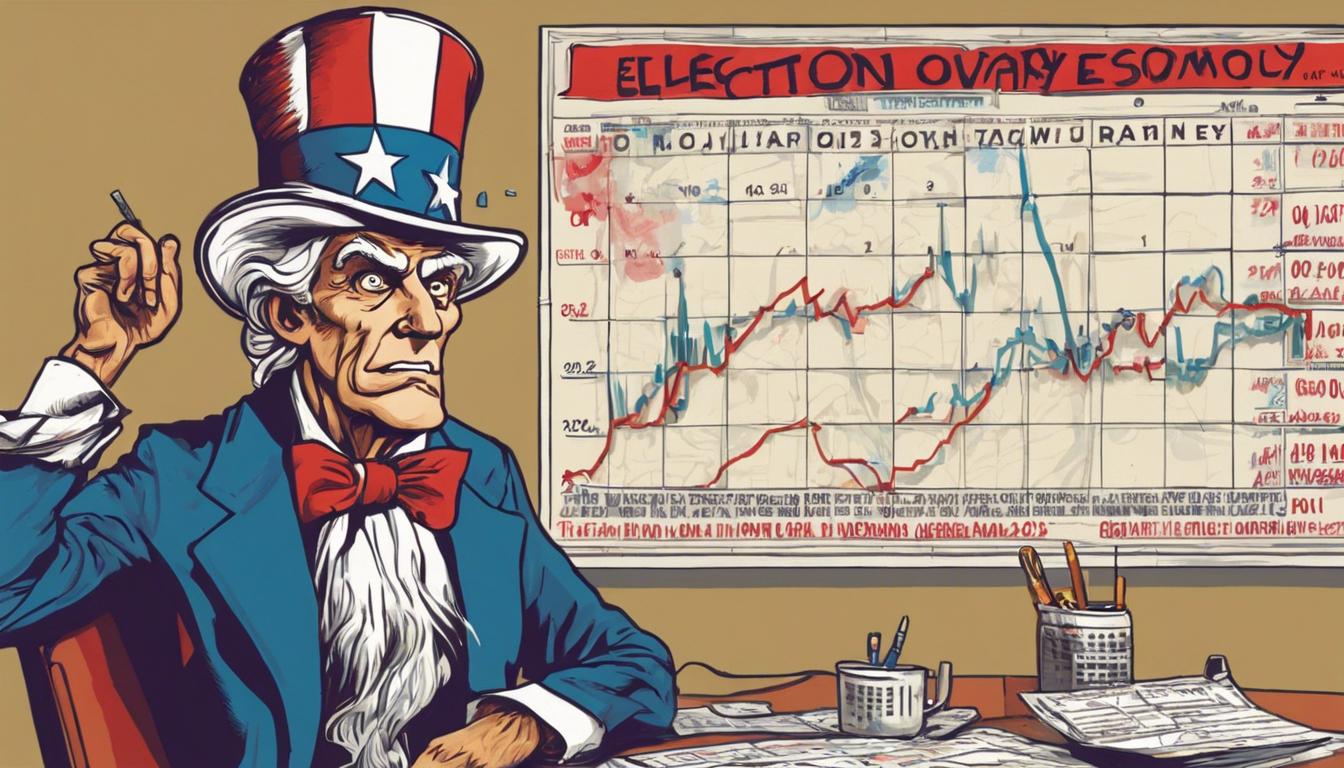A recent report from the Commerce Department indicating a slowdown in the US economy has led to a downturn in the stock market and could influence the upcoming presidential election.
Economic Slowdown Affects Stock Market and Election Outlook in US
The US stock market witnessed a decline following the Commerce Department’s recent report that revealed a significant economic slowdown. The report, released on April 24, 2024, showed the US gross domestic product (GDP) grew by only 1.6% in the first quarter of 2024, missing the economist’s expectations of 2.4%. This marks the slowest growth rate in nearly two years. Consequently, major market indices such as the Dow Jones industrial average fell by 1.8%, with similar downtrends in the S&P 500 and Nasdaq.
Contributing to economic tensions, the core personal consumption expenditures price index, key for measuring inflation, escalated to 3.7% in the first quarter, exceeding forecasts. This has influenced market predictions about the Federal Reserve’s monetary policies, delaying anticipated rate cuts possibly until November 2024, according to analysts.
This economic backdrop is shaping the political narrative as the US heads towards a presidential election. With high inflation and shifting consumer spending patterns, President Joe Biden faces scrutiny over his economic management compared to the Trump administration. Despite the slowdown, Treasury Secretary Janet Yellen affirmed that the economy was performing robustly, describing the current situation as unusual but not worrisome.
Germany Sees Positive Economic Signals Amid Recovery Efforts
In contrast, Germany is experiencing a recovery phase, with the government recently upgrading its 2024 growth projection to 0.3%. This optimistic revision follows a challenging period marked by energy price shocks and reduced global trade due to Russia’s reduction in gas exports. Participants in the market are encouraged by early-year improvements in industrial production and consumer spending power, supported by declining consumer price inflation, which stood at 2.2% in March 2024.
Economy Minister Robert Habeck confirmed the positive trajectory, emphasizing the crucial role of structural reforms in maintaining competitiveness and addressing bureaucratic and skill shortage challenges. Moreover, the Ifo institute has noted a surge in business confidence, signaling healthier economic prospects for Germany as it embarks on necessary industrial transformations.













